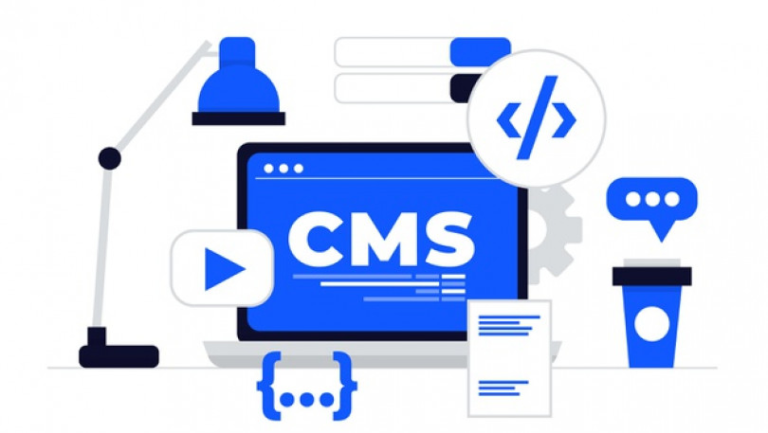How do you choose the perfect platform for your blog?
Creating a blog is a great way to share your thoughts, experiences and knowledge with the world. Before diving into blogging, it is important to choose the right platform. It should suit your goals, objectives and level of technical proficiency. In this article, we will look at various aspects of choosing the perfect blogging platform, from analyzing goals to comparing pricing plans.
Choosing a platform depending on the goals and objectives of the blog
Before choosing a platform, you need to clearly define the goals and objectives of the blog. If you want to blog for personal pleasure, a simple and free platform may be suitable. If the blog is part of a business strategy, you will need a more powerful and flexible platform that can support commercial functions.
Questions to ask before choosing a platform:
- What kind of audience do you want to attract?
- What features are needed?
- What level of technical support do you need?
- Are there any plans to monetize the blog?
By giving clear answers to these questions, you can choose the perfect blogging platform.
Comparison of features and functionality of the most famous blogging platforms
Let’s look at the pros and cons of a few popular platforms.
WordPress
Advantages:
- A huge number of themes and plugins.
- Flexible customization.
- With its help, you can create any type of website – from blogs to online stores.
Disadvantages:
- Difficulty of mastering for beginners.
- Paid add-ons can be expensive.
- Fairly high hosting requirements.
WordPress is suitable for different users: beginners and users who are familiar with PHP and HTML code.
Ghost
Advantages:
- High page load speed.
- Great for publishing content.
- Simplicity of the interface.
- Open Source.
Disadvantages:
- Fewer plugins and themes compared to WordPress.
- Limited functionality to create complex sites.
Ghost can be used as a hosting platform or as software that you install on the hosting of your choice.
Blogger
Google development that you can start your own blog in just 5 minutes.
Advantages:
- Free platform.
- Ease of use.
- Integration with Google services (you can connect AdSense).
- Suitable for aspiring bloggers.
- It is possible to connect your own domain.
Disadvantages:
- Limited customization options.
- Limited access to html code.
- Poorly indexed by search engines.
- Small collection of templates, occasional updates.
The service is completely free, which is what lures many users. There is a downside – if Google doesn’t like something on your blog, it can be deleted.
Wix
A well-known website builder, well suited for blogs as well. You can edit your own site with drag-and-drop functionality – no HTML knowledge is required.
Advantages:
- An intuitive and user-friendly editor.
- Large selection of templates.
- Support for multiple applications.
- Ability to add as friends and mutually view entries.
Disadvantages:
- Limited SEO Opportunities.
- The high cost of premium plans.
In the free version, your site will have the Wix logo on it. This small disadvantage motivates many people to switch to a paid subscription.
Squarespace
Another builder with drag-and-drop system and lots of templates.
Advantages:
- Stylish and professional templates.
- Support for e-commerce.
- Good technical support.
Disadvantages:
- Paid platform. To create even a small blog, you will need to activate a tariff.
- Less customization options compared to WordPress and Wix.
There are also restrictions on connecting third-party services.
SITE123
A simple platform with few templates is a great option for beginner bloggers.
Advantages:
- Ease of use.
- Quick site customization.
- Free Rate Plan.
- Free subscription and the ability to connect friends from Meta (Facebook).
Disadvantages:
- Most of the customizations are only available with a paid subscription.
- Less flexible platform compared to competitors.
The free plan includes blog templates as well as essential features like analytics, social bookmarking, search, and an RSS news feed
Each of the described platforms has its pros and cons, which you need to consider when choosing.

Free and paid platforms
Free platforms, such as Blogger or the free versions of Wix and SITE123, are suitable for beginners or those bloggers who do not plan to make significant investments. They offer basic features that are enough for a simple blog. Keep in mind that monetization will require upgrading to a paid plan
Paid platforms such as Ghost, Squarespace, and Wix premium plans provide more features, support, and professional functions that may be necessary for serious and popular projects.
Convenience and interface
Platforms like Wix and Squarespace offer intuitive and user-friendly editors with drag-and-drop elements, making them ideal for beginners. WordPress, while complex, provides powerful customization tools that advanced users will appreciate.
Customization and connection options
Customization and integration options are important aspects for those who want to create a unique and functional blog.
WordPress offers thousands of plugins and themes that allow you to completely customize the look and functionality of your site.
Ghost and Squarespace also offer good customization options, although less flexible compared to WordPress.
This is due to the fact that WordPress is a downloadable product that you host yourself.
The product is open source, which opens up a wide range of customization possibilities.
Blog builders such as Wix or SITE123 cannot technically offer such functionality.
Comparison of tariff plans and cost of use of different platforms
Free platforms, such as Blogger, require no investment but have limitations. Paid platforms and builders offer a variety of plans, ranging from basic to professional, with prices ranging from a few dollars a month to several hundred dollars a year.
Examples of Fees:
- WordPress. The product is fee-free, but premium themes and plugins may incur additional costs.
- Ghost. Plans starting at $9 per month, depending on the number of subscribers.
- Wix. Premium plans starting at $14 per month.
- Squarespace. Plans starting at $12 per month.
- SITE123: Free plan with limited features, premium plans starting at $12.80 per month.
Weigh the pros and cons of each platform, evaluate their features, cost and usability. Regardless of your choice, the key is to get started and share your content with the world on a regular basis.
Recall that TutHost offers powerful SuperMicro servers for your blog, assistance in registration and trademark verification, as well as the service of domain transfer from third-party sites to our servers.







